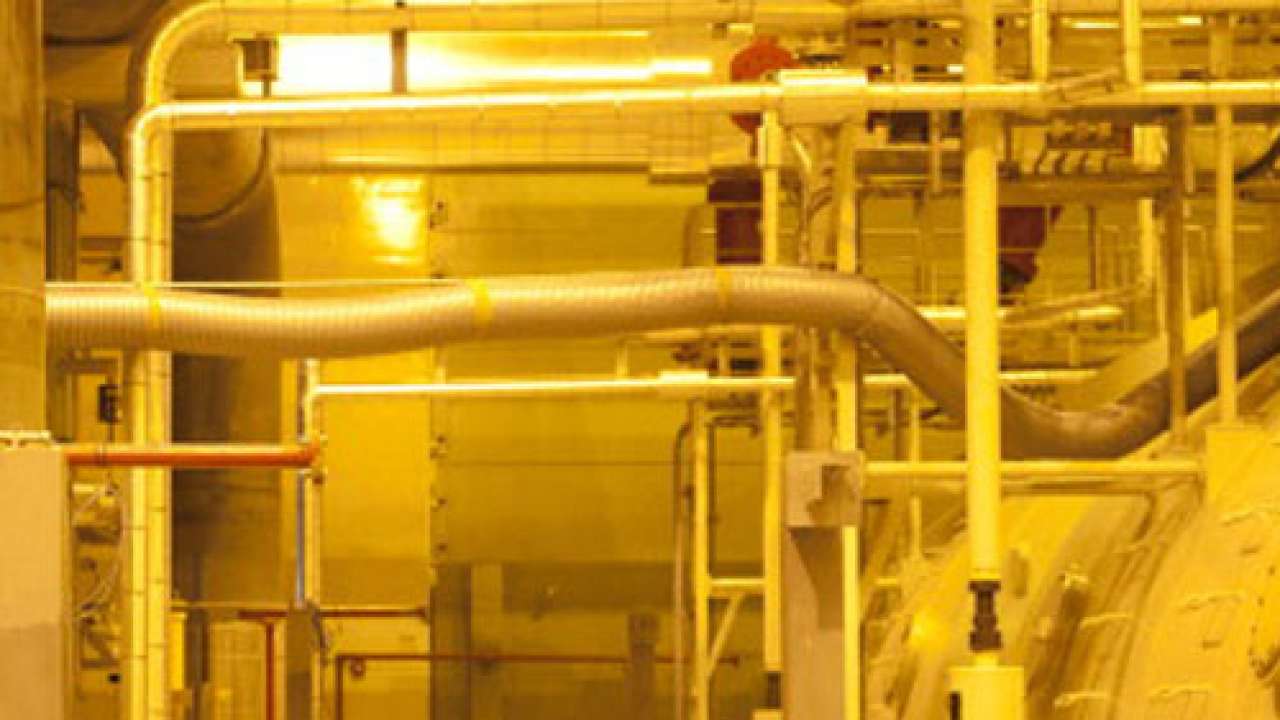
- Select a language for the TTS:
- UK English Female
- UK English Male
- US English Female
- US English Male
- Australian Female
- Australian Male
- Language selected: (auto detect) - EN
Play all audios:
Tokyo Electric Power Co reported its first half-year profit since the Fukushima nuclear disaster in 2011, but faces an uncertain future as the government threatens to split the utility,
which has struggled with cleaning up the site. Tokyo Electric, or Tepco, faces huge compensation claims and has set aside just a fraction of the funds needed to decommission the crippled
Fukushima Daiichi station, following reactor meltdowns in March 2011 that forced 160,000 people to flee their homes. Japan's atomic regulator all but told Tepco this week to forget
about restarting another of its nuclear plants, which would help it cut costs as part of a restructuring plan - now being revised - and focus on the mounting problems at the Fukushima site.
Tepco said it made a recurring profit - before taxes and one-offs - of 141.7 billion yen ($1.44 billion) in April-September after cutting costs and selling assets. Net profit was 616.2
billion yen, versus a year-earlier loss of 299.5 billion yen, after receiving 666.2 billion yen from the government to pay out in disaster compensation, and a 74.2 billion yen gain from
selling assets. Revenue rose nearly 12 percent from last year to 3.22 trillion yen. Tepco, which has only once reported an annual net profit since 2007, when an earthquake damaged another of
its nuclear stations, gave no full-year profit forecasts. Tepco has been widely criticized for repeated missteps, poor disclosure and a lack of planning in its efforts to clear up the site
of the worst nuclear disaster since Chernobyl in 1986. The company should be stripped of the responsibility for shutting down Fukushima, according to a draft proposal this week from a panel
of Japan's ruling Liberal Democratic Party. A person familiar with the panel's deliberations said it favours an option of creating a separate organization within Tepco to handle
the clean-up. The policy recommendations will be presented to Prime Minister Shinzo Abe as soon as next week. Japan has provided Tepco with a 5 trillion yen credit line for compensating
evacuees and damaged businesses, but Tepco has already said it may need twice that. "The government seems to be pretty concerned about our situation. Our view that Tepco cannot shoulder
all the costs for decontamination and decommissioning remains unchanged," Tepco's president Naomi Hirose told reporters on Thursday. "I hope they consider that in their
discussions." The Japan Center for Economic Research, an independent think-tank, reckons total decommissioning costs at Fukushima may be at least $100 billion. Tepco has said it will
set aside about $20 billion for the clean-up. To help cut its fuel costs, Tepco wants to restart reactors at its Kashiwazaki Kariwa nuclear power station, the world's biggest, but it
has met stiff opposition from the local prefectural governor. All of Japan's 50 nuclear reactors have been shut down for safety checks, with no firm restart schedule - forcing utilities
to increase imports of fossil fuels that have helped push Japan into a trade deficit. Some though, including Kansai Electric Power Co, are returning to profitability after raising
electricity prices and pruning costs. Price rises, however, mean the utilities are losing customers to an increasing number of independent power companies that are taking advantage of moves
by the government to free up Japan's tightly regulated power market. ($1 = 98.1450 Japanese yen) (Editing by Ian Geoghegan)




.jpeg?rect=0%2C15%2C800%2C420&w=1200&ar=40%3A21&auto=format%2Ccompress&ogImage=true&mode=crop&enlarge=true&overlay=false&overlay_position=bottom&overlay_width=100)


